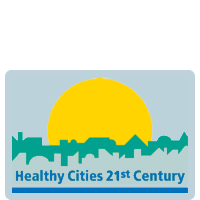To work with planners effectively it is important to understand the system they operate in, and the processes for developing policy and making decisions. Planning must follow a process set out in legislation; knowing when to input into policy is vital for influencing change on the ground.
Put simply, local planning decisions will be guided by local plan policies, which must be based on evidence. This evidence should be drawn from a range of sources such as quantitative data, the needs and wishes of local communities and the council’s strategic objectives. The most effective way to influence policy is to provide evidence in a form that is useful to planners, at the time when they are preparing the local plan. In Northern Ireland, the new local authorities will be preparing their plans from 2015. This presents an opportunity for public health practitioners and others to make contact with local authority planners and talk about the policies they would like to see included, whether or not the evidence exists already and, if not, how they could help to generate it.
For more information on the Northern Ireland planning system see Resource 4.
For general information on influencing each stage of a planning process to improve health, see Planning Healthier Places (Section 4) (TCPA, 2013).


